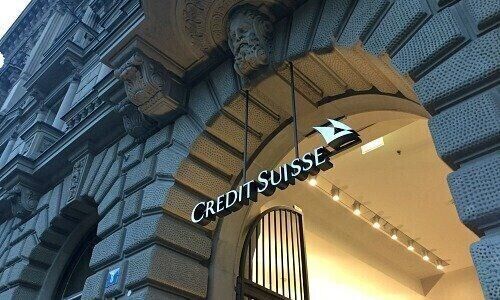Credit Suisse: Last Chance for Shift
The bank's problems run deeper than António Horta-Osório's quarantine snafus.
1. Entrepreneur's Bank Without Entrepreneurs
The repeated violations of COVID-19 rules by Chairman António Horta-Osório may be a side show, as David Herro of Harris Associates argues. The breach itself is less alarming than the discrepancy between its ambitions as an entrepreneur's bank and the behavior of its leaders – some domestic clients are already expressing unease.
Credit Suisse can only make good on these ambitions if it distances itself from leaders where words and actions don't match up, as is the case with Horta-Osório.
2. Understanding Credit Suisse's Virtues
Unlike rival UBS, Credit Suisse regularly leans on the heritage of its founder Alfred Escher – and «Suisse» is not accidental in its name. The imagery relays trust, reliability, credibility, and security – some of which were lacking in executive behavior at Credit Suisse in recent years.
The way out of its current crisis is linked to an acknowledgement of Switzerland and its import to Credit Suisse – something which has to be exemplified by its top tier, which in turn might have to first understand the concept itself.
3. No More «Clean Vest»
The probe into Horta-Osório represents a contrast from «spygate,» the most recent scandal involving Credit Suisse top executives and moral norms in business. Then-Chairman Urs Rohner argued that surveillance of a former top executive was an isolated incident, only to later be proven wrong when a regulatory investigation found Credit Suisse planned seven such spy operations.
The episode is reminiscent of Rohner's insistence that «my vest is clean,» or his conscience is clear, after a $2.5 billion U.S. tax settlement in 2014. The quarantine probe likely represents a bid to come clean proactively, as opposed to facing a months-long drip feed of revelations as with the spying. Top lawyer Romeo Cerutti is a Credit Suisse veteran – so much so that it is questionable whether an investigation overseen by him will become uncomfortable for those involved.
4. Shareholder Inertia
Credit Suisse lives from shareholder inertia: Herro (see point 1) aside, others like Qatar, Saudi Arabia’s wealthy Olayan clan, Blackrock, Dodge and Cox, and Silchester have rarely or never commented or stood a board representative. This leaves the Swiss bank to its own devices – and often at odds with expectations in its home market, where «Swissness» (see point 2) and heritage are key to its value proposition. Part of the chairman’s challenge is to reconcile the two very disparate worlds seamlessly.
For their part, investors haven't always done well on their stockholdings: Harris Associates recently admitted it started buying Credit Suisse around 20 Swiss francs per share. At current share prices, that translates to a 55 percent loss on its overall holding, currently at more than five percent, though Herro has boasted about selling some shares when they stood at 60 or 70 francs per share.
5. All Eyes On Severin Schwan
The Credit Suisse vice-chairman appears appalled at Horta-Osório's COVID rules-break. No wonder: as CEO of Roche, Severin Schwan is at the forefront of fighting the pandemic. He is also party to nominations, governance, and risk at Credit Suisse – and was a linchpin in securing Horta-Osório from Lloyds one year ago.
Schwan, who was indulgent in public goodbye remarks to Rohner in April, would be a decisive voice in determining whether Credit Suisse can withstand the Horta-Osório credibility issue or not.




























